WNYC Leadership Created a Mess
Plus: An Update from the SAG-AFTRA union of content creators at Marketplace
Hello!
I was originally planning to get this to you last Friday, but —
So let’s get right to it. (If your email cuts off this issue, continue reading it here.)
WNYC Leadership Created a Mess

When New York Public Radio’s WNYC, along with PRI (later acquired by PRX) launched the daily news radio show The Takeaway in 2008, the station promised that it would “[create] a new model for morning news and public broadcasting in the 21st century. The show will be rooted in the values public radio is best known for – highly credible journalism, depth and context…”
Welp, it had a good run. Last month came the news that WNYC and PRX have decided not to renew the show’s contract (its final episode will drop on June 2nd). According to a memo, the reason behind its cancellation were “declines in audience and station carriage,” “pre-existing financial deficits” and “revenue headwinds.”
On the face of it, those explanations sound reasonable, but it’s been hard to ignore all the tweets claiming that the show suffered from a lack of investment from leadership, particularly from the show’s current host and former MSNBC TV personality Melissa Harris-Perry. Many of her posts have name-checked WNYC leadership —

And a number of them have specifically called out WNYC Chief Content Officer Andrew Golis.


So how did we get here?
This is a challenging question to answer, as many members of the current Takeaway team are too busy negotiating their exits with the station and making the actual show to speak with nosy reporters. Complicating things further, while there was a brief acknowledgement on its program The Brian Lehrer Show, WNYC hasn’t publicly announced the news, much less formally reported on it. A NYPR spokesperson told me that the powers that be will “plan a more formal announcement to the audiences closer to the show’s conclusion.” (Of course, reports of internal turmoil at WNYC have surfaced repeatedly over the years; perhaps management hopes that if they ignore this particular moment of outrage long enough, it’ll go away.)
In any event, I’ve managed to speak with six sources on background (most of them former WNYC employees) who have helped illuminate some of the factors that likely led to where things stand now, and after the dust has settles, I hope to gather more current insights from the team. To that end, if you are part of The Takeaway team and are ready to talk about your experience, please reach out on Twitter, hit reply on this newsletter, or email me at skyepillsatwork@gmail.com.
According to former employees, WNYC leadership — and in particular, Chief Content Officer Andrew Golis — have understaffed The Takeaway for years. “I don't think there was ever a time where we didn't have a temporary producer doing the role of a full-time producer,” said a former member of the team.
“People who had developed institutional knowledge would be extremely overworked, get burned out and leave,” said another. “It always took a long time to replace someone and in the meantime, the problems got worse.”


The team’s lack of resources made it challenging to implement new programs that could increase engagement, reach new listeners, or help the show become more “digital forward” — a phrase used by Golis when expressing how he thought the show should evolve. Due to the enormous amount of work and manpower necessary to produce a daily news show, “conversations about creative ideas or longterm plans for the show always had to be put to the side,” said a source.
For example, after Harris-Perry joined the team as a permanent host, she developed special installments called “Deep Dives” that explored a single topic. These episodes had the potential to set The Takeaway apart from other daily news shows, had a longer shelf life, were less tied to news-driven radio, and one could argue, were more “digital forward.” However, according to my reporting, the team wasn’t able to capitalize on the value of these installments because everyone was always stretched so thin and management didn’t assign extra resources for the project (according to WNYC website, the most recent Deep Dive piece appeared in September of last year).
Employees also allege that when Harris-Perry joined the team, the station missed an opportunity to rebrand the show around what she brought to the table, or at the very least, properly position her against her predecessor. For example, one source told me that a key station in a major market ended up moving The Takeaway to a less ideal evening timeslot, fearing that Harris-Perry, who is Black, would be less likely to address issues important to their Latino listeners than the show’s previous host Tanzina Vega, who is Latina. (In response to these claims, a NYPR spokesperson said that “After Melissa joined the show, PRX set up a series of listening sessions with key stations Program Directors across the country in which she laid out her editorial vision for the show and listened to their feedback.”)
Finally, there seems to be a sense from former employees that Golis doesn’t entirely support the idea that mission-driven content with smaller audiences should still be highly valued within the public radio sphere. Multiple people cited his decision to cancel Nancy, a show about the queer experience, as an example; other claimed that Golis was behind the near-cancellation of John Schaefer’s popular experimental music show New Sounds. (Regarding the latter, according to sources as well as this story in the New York Times, after private and public outcry, then-CEO Goli Sheikholeslami made the decision to keep the show on its roster. A NYPR spokesperson said New Sounds “did not report to Andrew.”)


When I reached out to NYPR for comment regarding employee retention, a spokesperson responded that “the show experienced significant staff turnover in the wake of Tanzina Vega’s departure in the Spring of 2021 and has been rebuilding since then.”
That’s not false — but Vega exited her role nearly two years ago. How long does it take to fully rebuild a team? And if it takes literal years, perhaps that’s a problem worth examining.
Let’s start that examination today. Multiple sources told me that after Vega left, the team was left to wonder what would become of the show for months. Two sources independently recalled attending a meeting, in which the team expected to finally get some answers. However, not long into the discussion, Golis said he was needed at a different gathering and had to duck out. After a producer called him out for leaving before answering any questions, Golis accused the producer of not being respectful of his time. During a separate meeting, a source remembered Golis expressing surprise at hearing that the team was suffering. “He didn’t seem aware — or didn't care to be aware — of how producers were feeling at the time,” said the former employee. “And he never seemed to care much about the show. It was a low priority for him.”
On September 2, 2021, “NYPR SAG-AFTRA Stewards” emailed station staff with the news that they had “brought up the issue of retention” with station leadership during a labor management meeting. Here’s more from that email, which I’ve viewed in full:
In this past calendar year, at least 17 members of our unit have resigned. Some have been offered better opportunities and others are leaving without job prospects. We have talked to several of the people who left and those who remain, and the overall feeling seems to be that of disillusionment and frustration with the organization.
We asked management to clarify their stance and efforts at retaining talent and while [then-CEO] Goli did say the company wants to attract and keep talented people, others in the call like Andrew Golis, are of the thought that New York Public Radio’s rate of attrition is on par with other media outlets. Simply said: nothing to see here.
This, of course, is a disappointing response.
As the situation became more tense, The Takeaway team made plans to address management themselves. In a formal letter addressed to Golis, then-CEO Goli Sheikholeslami, the respective heads of HR and DEI, and the chairman of the WNYC board, “all permanent and temporary staff of The Takeaway” wrote that “the future of the show … has been imperiled by a repeated failure on the part of management to extend necessary resources to our team … The Takeaway has suffered dramatic loss of key personnel in recent months. Leadership of WNYC has done little to permanently address these losses.”
The letter, which I’ve seen in full and hasn’t been reported on before, included specifics regarding the state of the team:
The show has not had a permanent host since July 2021. There is no current job description or active job post or search for this position.
Lee Hill announced his resignation on September 23rd. It is effective October 15. No interim EP was announced at the time of Hill’s announcement. There is no current job description or active post or search for a permanent executive producer.
The show has not had a permanent senior producer since August. There is no current job description or active post or search for this position.
The show does not have a permanent planning editor. This role was approved in the summer of 2021. There is a current job description, but the search has been suspended. There are no active candidates for this position.
The show lost a permanent producer in June when Jose Olivares resigned. This role was approved for permanent replacement in September 2021. There is a current job description, but the search has been suspended. There are no active candidates for this position.
The majority of the dayside production team responsible for daily guest booking, content, digital content and marketing is working with time limited contracts. This includes: [Ed. Note: I’ve removed the six people in these roles in order to protect their privacy]
“It is not possible to produce a daily radio program of the quality station managers and listeners have come to expect from The Takeaway under these staffing circumstances,” the letter continued.
According to my reporting, Golis was upset by the letter and questioned the team’s then-executive producer Lee Hill about why he had “allowed” it to be sent (sources told me that Hill, who had already announced his resignation, wasn’t aware of the letter until right before it was sent). The team was left with the impression that Golis was more concerned with the letter entering the public sphere, than whether the team had legitimate complaints. When reached, Lee Hill, who is now Executive Editor at WGBH in Boston, declined to comment but directed us to his statement on Twitter about the show and its team. As of this writing, NYPR hasn’t responded to my requests for comment in reference to this moment in the show’s history.
After the letter, the station did make a few changes including adding one full-time producer and making Melissa Harris-Perry the show’s permanent host, but given the show’s deep staffing deficits, it wasn’t enough. When I checked this with an NYPR spokesperson, she told me that “the station and show’s leadership worked together filling open roles and structuring the team for the future” but that “the show’s budget remained the same.”
So the show’s budget, which was clearly inadequate for a daily news show, remained the same. (What’s that old saying about doing the same thing and expecting different results?)
Shouldn’t this have been the moment to weigh the options and assess whether the station could afford to produce the show at the level it deserved, without burning people out? Alternatively, perhaps this would have been a good time for WNYC to explore how to cut down on expenditures that didn’t include laying off an entire team and axing a show beloved by many (and still carried by over 250 stations)?
Setting aside the fact that over the past year and a half, the mission-driven reporting from The Takeaway has been highly valued by the community it serves, was giving the team just enough support to survive — but not enough to thrive — an ethical choice? After all, the letter had provided management with “an out,” writing that:
In the event of a decision to cancel The Takeaway, we will work closely with the union to ensure fair severance pay and health care for all workers, both permanent and short-term contracted employees … We welcome opportunities for frank, open, honest conversations between management and the full team of The Takeaway…
In that moment, leadership could have given the show the resources necessary for it to reach its full potential or made the hard choice to end the show with dignity. Instead, regardless of who or what is to blame, they’ve ended it with a mess.
[Again, if you are part of The Takeaway team and you are ready to talk about your experience, you know where to find me.]
P.S. A thought-provoking Tweet posted today by Melissa Harris-Perry:
And now, an update from the SAG-AFTRA Union at Marketplace
It’s been 509 days since the SAG-AFTRA union of content creators at Marketplace started bargaining for a contract with American Public Media / Minnesota Public Radio. Recently, the unit’s Twitter handle released a thread of testimonials from employees who say they can’t make ends meet on their Marketplace salary alone.

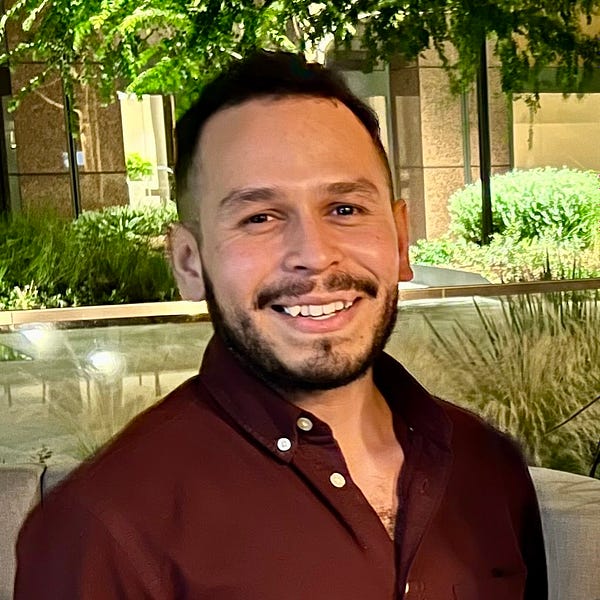
It brought to mind a comment SAG-AFTRA’s Chief Broadcast Officer Mary Cavallaro made during our interview last year:
You hit on something else that I want to comment on — the idea of an unpaid internship, and how it excludes people who, because of financial challenges, can't capitalize on those opportunities. The good news is the unpaid internships are going away, but even an associate producer salary in some markets is not a livable wage for people who have college loans or other struggles. It's something that SAG-AFTRA is really focused on; we're working with employers to find ways to open doors for people, so that they're not shut out of opportunities.
Annnnyyyyyywayyyyys….
That’s all for me today — see you soon.
Skye
Post Script: ❤️❤️❤️ RIP MAX PEPPERMINT PILLSBURY ❤️❤️❤️
Since my last newsletter dropped, my loyal writing partner — and by that, I mean the absurdly sweet rescue who sat at the feet of my desk every day — passed away. I feel a duty to honor him in this newsletter, just as he dutifully kept me company as I worked on The Squeeze, sometimes late into the night. Here’s a bit about Max, written by The Mister:
Max was the best dog we could have ever hoped for. He was fiercely loyal, endlessly patient and always had a smile on his face. The fact that he was never really fully potty trained and thought that anyone who came to our front door was going to murder us did nothing to diminish his total and complete awesomeness. We will miss him terribly and remember him always.
I couldn’t have said it better myself (and so I didn’t). ❤️

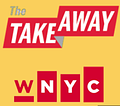


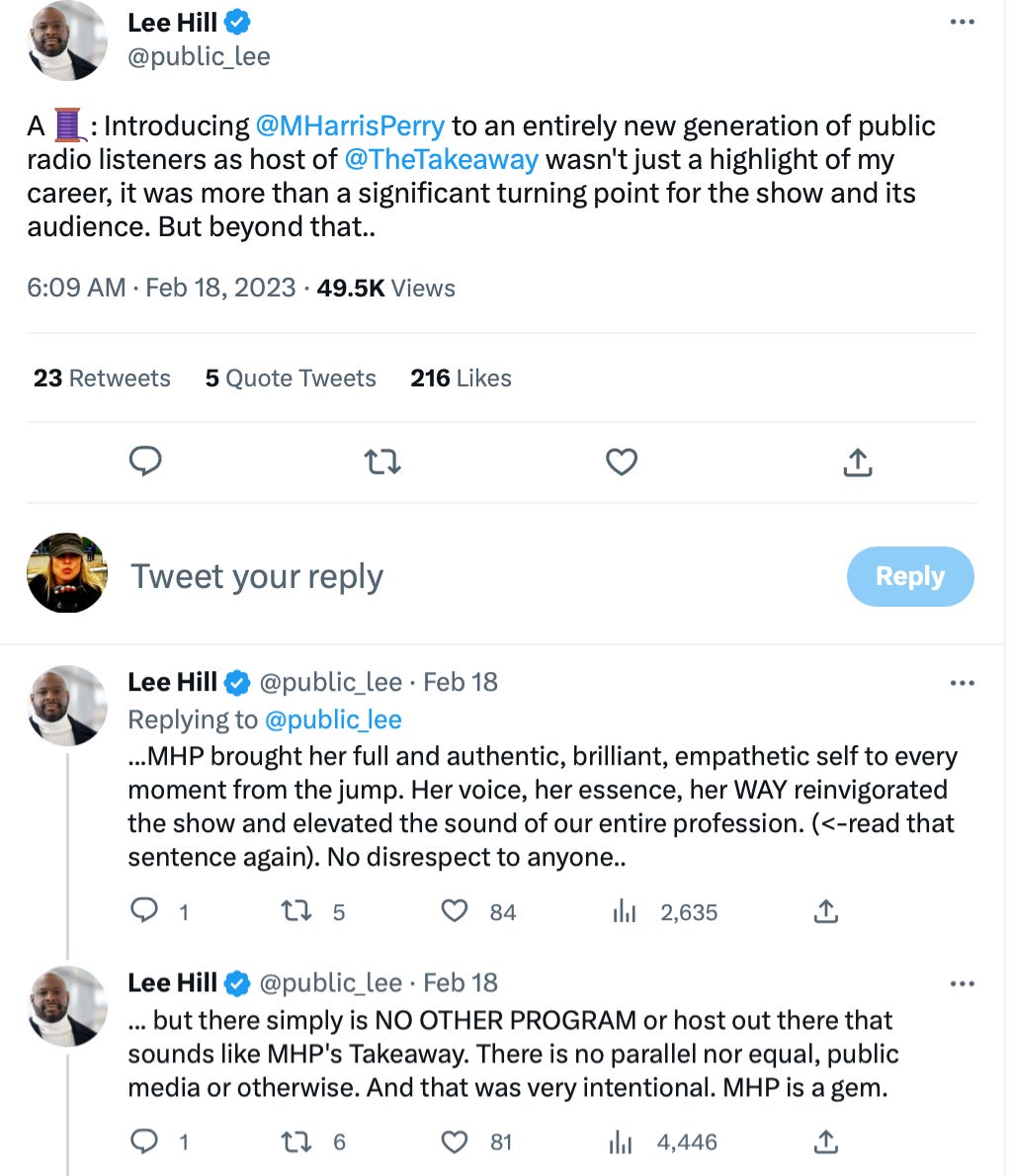
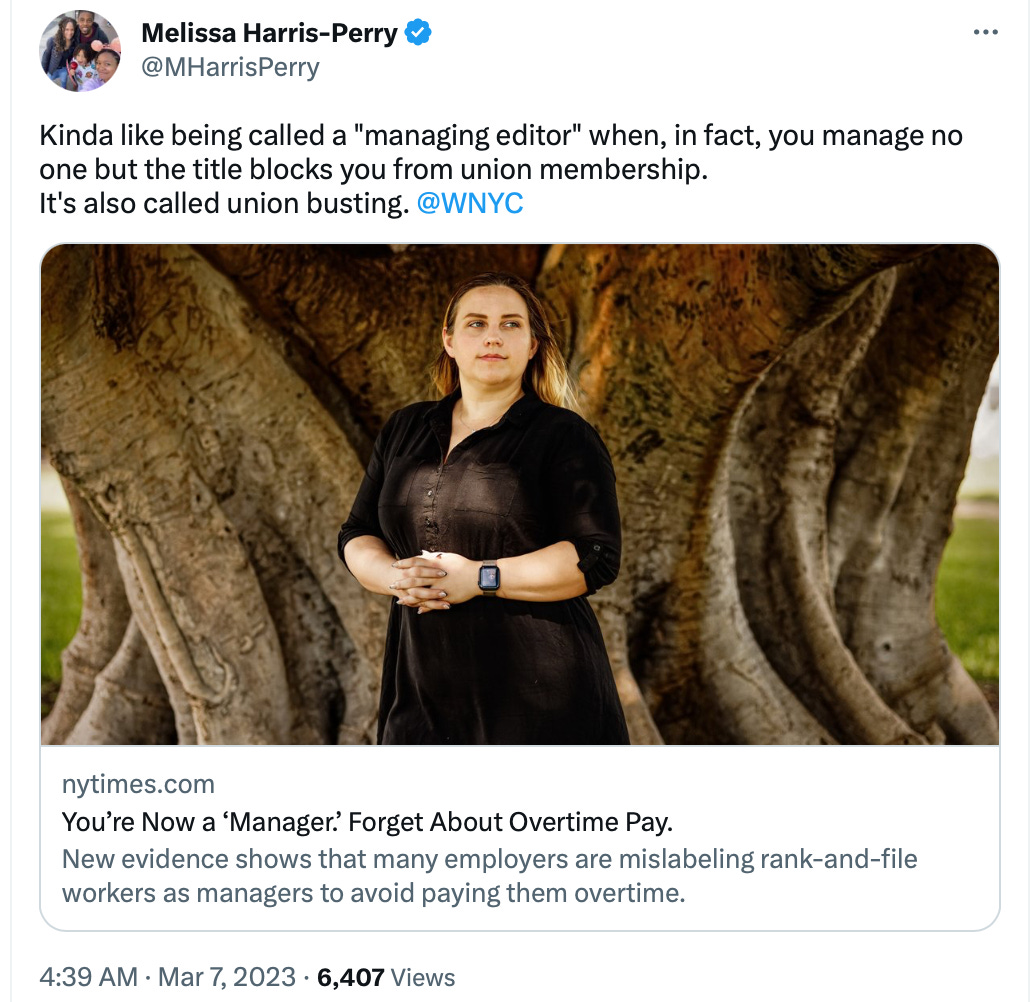
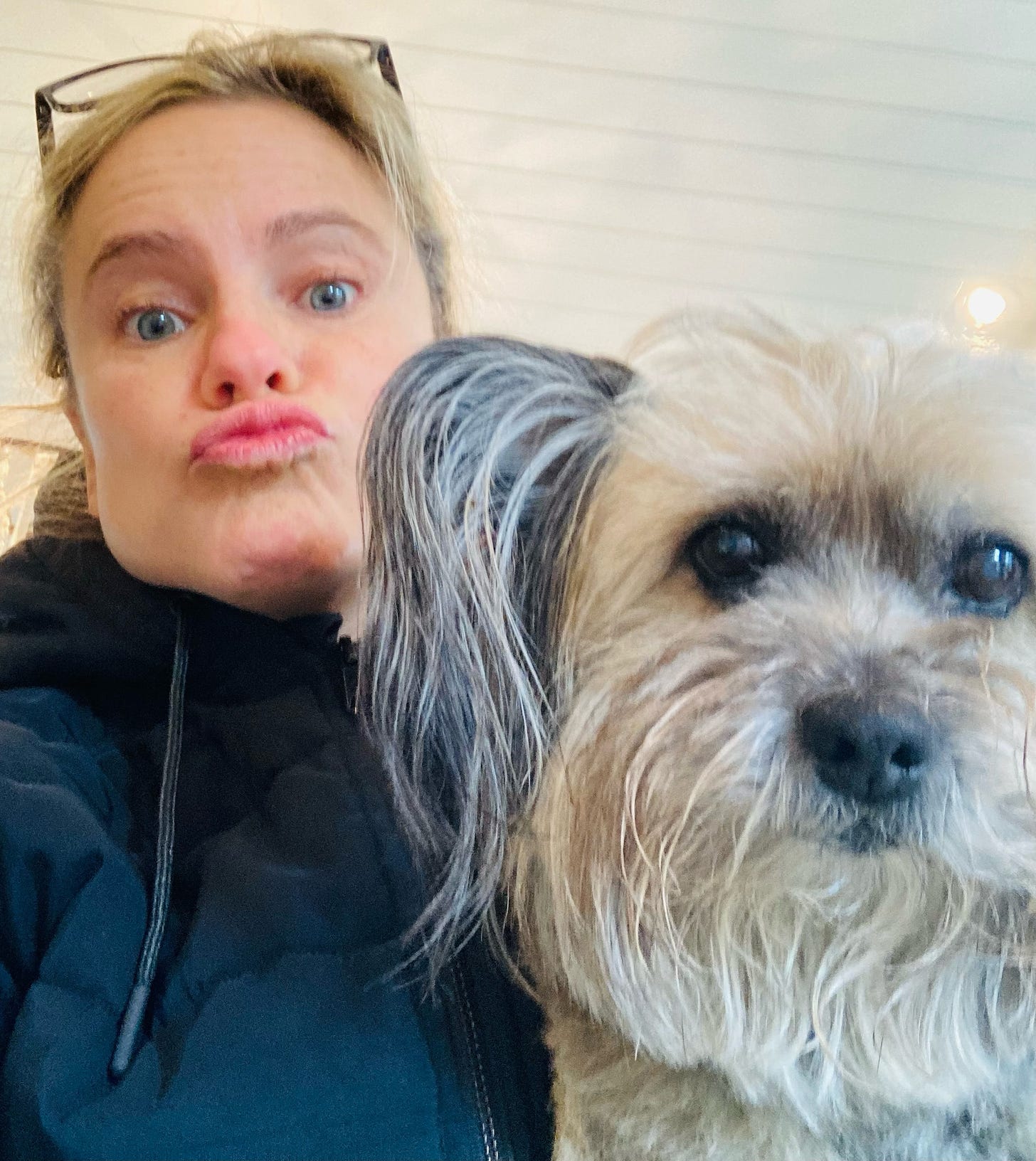
They were on 250 stations and canceled it??? That seems pretty significant to claim it was a drag on their financials. Skye, I hope you take time to explore the profit motive here and elsewhere in public media. It goes against the ethos of what we believe these nonprofits should be. Wages for editors, executives, and talent are up across the board, and yet as you report here they can’t seem to fill roles in a timely manner for producers who run the damn show. And what’s more, they can’t explain why a valuable show for news consumers is being treated like an underperforming show on prime time cable. Public media is supposed to be above this. Maybe they change their ambitions, and maybe they rethink their focus, but the show doesn’t have to go away. Not if it’s on 250 stations.